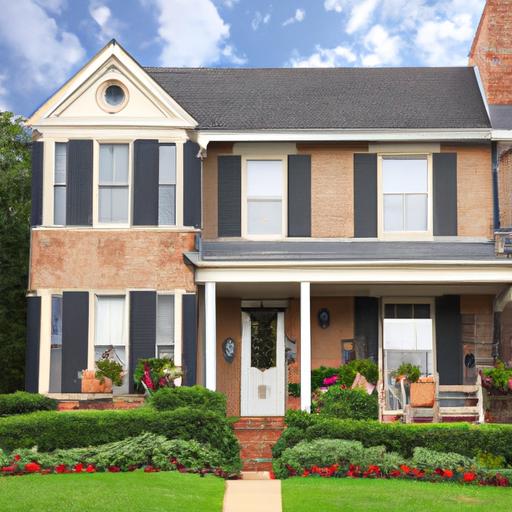
Introduction
A. Definition of Home Loans for Bad Credit First-Time Buyers
When it comes to purchasing your first home, having bad credit can often feel like an insurmountable obstacle. home loans for bad credit first-time buyers offer a lifeline to those who may have struggled with financial setbacks in the past. These specialized loans are designed to provide opportunities for individuals with less-than-ideal credit scores to achieve their dream of homeownership.
B. Importance of Access to Home Loans for First-Time Buyers with Bad Credit
For many first-time buyers with bad credit, access to home loans can be the key to unlocking the door to homeownership. These loans not only provide a pathway to owning a home but also offer a chance to build equity and establish financial stability. By understanding the options available and taking steps to improve creditworthiness, individuals can take control of their financial future and turn their homeownership dreams into reality.
Understanding Bad Credit
A. What Constitutes Bad Credit?
Bad credit is typically defined as a low credit score resulting from a history of late payments, high levels of debt, or other financial missteps. Lenders use credit scores to evaluate an individual’s creditworthiness and ability to repay a loan. A credit score below a certain threshold, often around 620, is considered bad credit and can pose challenges when applying for loans.
B. Impact of Bad Credit on Loan Eligibility
Having bad credit can significantly impact your ability to qualify for a home loan. Lenders may view individuals with bad credit as high-risk borrowers, leading to higher interest rates, stricter loan terms, or even denial of loan applications. Understanding how bad credit affects loan eligibility is crucial for first-time buyers looking to navigate the homebuying process successfully.
C. Steps to Improve Credit Score
Improving your credit score is essential for increasing your chances of qualifying for a home loan. By paying bills on time, reducing debt, and monitoring your credit report for errors, you can take proactive steps to boost your credit score over time. Working towards a better credit standing not only opens up more opportunities for loan approval but also sets you on a path towards a healthier financial future.
Home Loan Options for First-Time Buyers with Bad Credit
A. FHA Loans
FHA loans, backed by the Federal Housing Administration, are a popular choice for first-time buyers with bad credit. These loans offer more lenient credit requirements and lower down payment options, making homeownership more accessible for those with less-than-perfect credit scores. FHA loans also provide competitive interest rates and flexible eligibility criteria, making them a viable option for individuals looking to purchase their first home.
B. VA Loans
VA loans, guaranteed by the Department of Veterans Affairs, are specifically designed to assist military service members, veterans, and their families in achieving homeownership. These loans often have more relaxed credit requirements and may not require a down payment, making them an attractive option for first-time buyers with bad credit who have served in the military. VA loans also offer competitive interest rates and do not require private mortgage insurance, further reducing the overall cost of homeownership.
C. USDA Loans
USDA loans, backed by the United States Department of Agriculture, are another option for first-time buyers with bad credit, particularly those looking to purchase homes in rural areas. These loans offer low to no down payment options and competitive interest rates, making them an affordable choice for individuals with less-than-perfect credit. USDA loans also have income restrictions based on the location of the property, so it’s essential to check eligibility requirements before applying.
D. Private Lenders Specializing in Bad Credit Loans
In addition to government-backed loan programs, there are private lenders who specialize in providing home loans to individuals with bad credit. These lenders may offer more flexibility in credit requirements and loan terms, allowing first-time buyers with bad credit to explore alternative financing options. While interest rates and fees may be higher with private lenders, they can provide a valuable opportunity for individuals who may not qualify for traditional mortgage programs.
Tips for Qualifying for a Home Loan with Bad Credit
A. Save for a Larger Down Payment
One effective strategy for increasing your chances of qualifying for a home loan with bad credit is to save for a larger down payment. A larger down payment can demonstrate your commitment to the purchase and reduce the lender’s perceived risk, making you a more attractive borrower.
B. Provide Proof of Stable Income
Lenders often look for evidence of stable income to assess your ability to repay a home loan. Providing proof of a steady income, such as pay stubs or tax returns, can show lenders that you have the financial means to meet your mortgage obligations, even with bad credit.
C. Consider a Co-Signer
If your credit history is less than ideal, considering a co-signer with better credit can strengthen your loan application. A co-signer agrees to take responsibility for the loan if you are unable to make payments, providing added security for the lender and increasing your chances of loan approval.
D. Shop Around for the Best Loan Terms
When seeking a home loan with bad credit, it’s essential to shop around and compare loan terms from different lenders. Each lender may have different criteria and offers, so exploring multiple options can help you find the best terms that suit your financial situation and improve your chances of securing a home loan.
Mistakes to Avoid When Applying for a Home Loan with Bad Credit
A. Applying for Multiple Loans at Once
When applying for a home loan with bad credit, it’s crucial to avoid the temptation of submitting multiple loan applications simultaneously. Doing so can have a negative impact on your credit score and give the impression that you are financially unstable. Instead, focus on researching and selecting the most suitable loan option before submitting a single application.
B. Neglecting to Check Credit Reports for Errors
One common mistake that first-time buyers with bad credit make is neglecting to review their credit reports for errors. Inaccuracies on your credit report can significantly impact your credit score and potentially hinder your chances of securing a home loan. By regularly checking your credit reports and addressing any errors promptly, you can ensure that your creditworthiness is accurately represented to potential lenders.
C. Ignoring Debt-to-Income Ratio
Another key factor that lenders consider when evaluating your eligibility for a home loan is your debt-to-income ratio. Ignoring this aspect of your financial profile can lead to loan rejection or unfavorable loan terms. It’s essential to assess your debt-to-income ratio and take steps to lower it if necessary before applying for a home loan. By demonstrating a strong financial position, you can improve your chances of securing a loan despite having bad credit.

